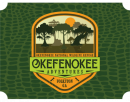Ways to Get Involved
Whether you want to further conservation, learn more about nature or share your love of the outdoors, you’ve come to the right place. National wildlife refuges provide many opportunities for you to help your community by doing what you love. National wildlife refuges partner with volunteers, youth groups, landowners, neighbors and residents of urban and coastal communities to make a lasting difference. Find out how you can help make American lands healthier and communities stronger while doing something personally satisfying.
Volunteering
Volunteers Make a Difference!
The volunteer program at Okefenokee National Wildlife Refuge has something to offer everyone! We seek to combine the interests of the volunteer with the work needed to be accomplished in order to achieve a productive partnership, one which will help ensure the preservation of resources within the refuge.
- Volunteers are welcome regardless of race, religion, age, gender, nationality, or disability. U.S. citizenship is not required.
- No special skills are needed to be a volunteer.
- While there is no age limit, anyone under 18 years must have written parental approval.
- Organized groups are welcome and encouraged to apply.
General Volunteer Program
To apply for a volunteer position, please fill out and return a Volunteer Service Application to Joy_Campbell@fws.gov. Please include “Volunteer Application” in the subject line. Applications are accepted year-round.
Visitor Center Front Desk Assistant
Front desk volunteers help connect visitors to the refuge at the Richard S. Bolt Visitor Center. They welcome visitors, answer questions, provide maps, relay recent wildlife sightings, and help visitors learn about the refuge. They may also operate the Okefenokee Wildlife League’s (Friends group) sales operation. Volunteers should expect to work a 4 hour shift, one day a week (9:00 am - 12:30 pm, 12:30 pm - 4:00 pm).
Environmental Education Assistant
During fall and spring, the refuge offers on- or off-site programs for school groups conducted by a refuge ranger or volunteer. During the summer months, library programs and other off-site educational programs often keep staff, volunteers, and interns busy.
Maintenance Assistant
Volunteers assisting with maintenance are often outdoors clearing upland or water trails, building/repairing/maintaining visitor facilities like boardwalks and platforms, cleaning facilities throughout the refuge, and many other tasks. Carpentry skills and experience with small tools, mowers, etc. are very helpful. Duties include:
- General property maintenance to include custodial upkeep of restrooms, and grounds, trash collection, mowing grass, trimming bushes, and planting native vegetation.
- Performing upland and water trail maintenance, using hand tools pole saws, weed eaters, brush cutters.
- Assist with building/repairing/maintaining visitor facilities like boardwalks, platforms, fences, directional/informational signs and kiosks.
- Tasks may also involve metal work and wood routing.
- May perform a variety of other duties depending on skills and interest.
Special Events
Okefenokee National Wildlife Refuge is always looking for enthusiastic volunteers to help with special events and community programs. Your time and energy make a real difference! Visit our Events Page to see upcoming opportunities and learn how you can get involved.
Resident Volunteer Program
The Resident Volunteer Program offers a unique opportunity for recreational vehicle and/or trailer volunteers to live and work at the refuge. It is only open to those volunteer candidates who own their own trailer and/or RV. Volunteers commit to work at the refuge 24 hours a week (per couple) and 32 hours a week (per person), for a minimum of three months. In exchange for their services, the refuge provides a full hook-up trailer pad, propane and access to garbage and laundry facilities. Volunteers perform work in the same area of operations as do our general volunteer staff, i.e. visitor services, environmental education and resource management.
Resident Volunteer positions are available year-round! Apply through Volunteer.gov.
For more information about any of the above volunteer programs contact the Okefenokee National Wildlife Refuge Volunteer Coordinator at 912-496-3200.
Our Partners
The mission of the U.S. Fish and Wildlife Service is working with others to conserve, protect, and enhance fish, wildlife, plants, and their habitats for the continuing benefit of the American people.



